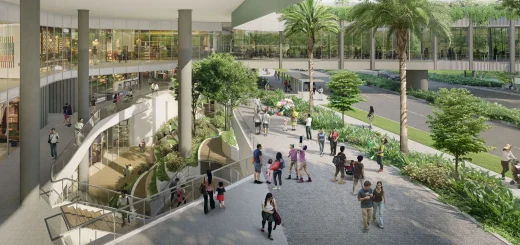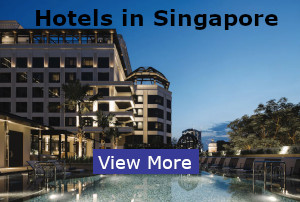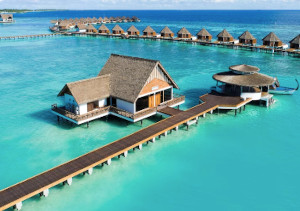Differences between Singapore and Hong Kong Cooling Measures
A new set of property cooling regulations were implemented in Singapore one month ago, which is a notion that may not be completely unfamiliar to those who are keeping an eye on the real estate market in Hong Kong.
Since the beginning of this decade, the government of Hong Kong has been enforcing some cooling measures, and in August, Financial Secretary Paul Chan said that there was “no plan or intention” for these restrictions to be removed.
The real estate ecosystems in Singapore and Hong Kong, on the other hand, couldn’t be more unlike, which influences the manner in which and the timing of when their respective governments choose to undertake interventionist actions to regulate housing demand.
More over eighty percent of Singapore’s resident population lives in public housing that has been established by the Housing and Development Board (HDB), and almost ninety percent of those individuals own their own homes.
In comparison, only roughly 45 percent of Hong Kong’s population lives in housing that is provided by the public sector. The city has been struggling with a shortage of housing for some time now, and inhabitants may have to wait as long as six years for a public apartment.
According to Christine Li, head of research for the Asia-Pacific region at Knight Frank, what distinguishes Singapore and Hong Kong from one another is that both places adhere to the free-market principle and do not impose a capital gains tax. This enables the majority of international buyers to participate in the market and buy and sell properties.
The availability of land in Singapore and Hong Kong is likewise restricted, and according to the patterns that have emerged over time, the demand for real estate has outpaced the interest in fixed income assets. According to Li, the necessity to calm the market necessitates the implementation of steps that would address the possibility of systemic hazards.
As a result, one of the most popular ways of putting cooling measures into effect is by lowering or regulating the amount of foreign investment or cash that flows into a country’s housing market.
According to Sing Tien Foo, professor at the National University of Singapore’s Institute of Real Estate and Urban Studies and director of the institute’s Institute of Real Estate and Urban Studies, “Cooling measures are generally targeted at foreigners because I think governments want to make sure that they can provide housing and give priority to local buyers and make sure they can afford housing.”
“You want to make sure that there are chances for real foreign investors, but you also don’t want too much money streaming into the market, as this might create short-term overheating,” says one potential investor.
More on Singapore Property Market
There has been a long history of cooling techniques in Singapore. Stamp taxes, loan-to-value limitations, and other restrictions were first implemented by the government in 1996 when the real estate market was beginning to heat up. These regulations were subsequently relaxed in 2005, however, they were initially implemented in 1996.
Since then, other steps to curb rising home prices have been implemented, some of which came into effect during the beginning of the 2010s while the nation was swiftly recovering from the 2008 global financial crisis.
According to Christine Sun, property brokerage Orange Tee & Tie, more recently, on September 30, a fresh wave of cooling measures went into force in Singapore. This was the first time that serious measures were concentrated on the public housing market.
The new policies will result in more stringent lending restrictions for government loans. The maximum loan-to-value ratio for public housing loans will also be reduced from 85% to 80%, which means that homeowners will be able to borrow less money from the Housing and Development Board (HDB). The maximum amount that may be borrowed from private financial institutions will not increase from its current level of 75%.
It is not anticipated that these loan limits will have an effect on first-time buyers or buyers with lower incomes. These buyers will continue to be eligible for housing grants of up to S$80,000 (US$55,720) when purchasing a subsidized flat directly from the HDB or up to S$160,000 when purchasing a resale flat from a HDB-approved seller.
It has also been decided to implement a waiting period of fifteen months for private property sellers who are interested in purchasing HDB resale flats. This measure is intended to reduce the amount of demand for housing from private homeowners.
Previous measures, such as the ones that were implemented in December 2021, had predominantly targeted the private residential sector of the island nation as their primary aim.
According to Sun, the resale prices of HDB flats in Singapore grew at a far higher pace than those of private residences as a direct consequence of the policies that were implemented in December. We have witnessed record prices in Singapore, and some of these condominiums are selling for more than one million dollars (Singapore).
The Housing and Development Board (HDB) and the Urban Redevelopment Authority (URA) released data showing that the price of resale apartments increased by 7.77 percent in the first nine months of the year. Concurrently, the demand for HDB resale flats priced at one million dollars also increased.
According to Li from Knight Frank, these procedures were also an effort to make certain that people would not overspend and expand their debt profiles beyond their family income and savings.
“Many people are really worried about the cost of housing, particularly considering that public flats are intended to be for Singaporeans with incomes in the middle-income and lower-income brackets,” said Sun. Therefore, “the government” has to implement these regulations as soon as possible in order to cut down the rate at which prices are rising for resale HDB apartments.
The new measures were implemented with the intention of reducing competition from private homeowners who have paid increasingly high prices for secondary market HDB flats after Singapore’s emergence from Covid-19 restrictions, as well as allowing first-time buyers to get their share of subsidized public flats, as Sun explained further.
According to Sing of the NUS, “the needs of both groups need to be taken into consideration by the government.” “They want to make sure that the values of the houses of the individuals who currently own them are preserved. On the other hand, they are responsible for ensuring that the prices do not increase to a point where they are unaffordable to first-time buyers and are beyond their grasp.
Hong Kong Property Market
Since more than a decade ago, the government of Hong Kong has been enforcing cooling measures in an effort to limit short-term speculation and lower demand from foreign countries and investment firms.
These measures include a buyer’s stamp duty, which is a tax on property transactions imposed on non-permanent residents and a double stamp duty, which is a tax implemented on purchasing residential purchases with the exception of those made by first-time buyers. Both of these taxes are levied on individuals who are not permanent residents.
However, in contrast to Singapore, housing costs in Hong Kong are now at a level that is the lowest it has been in the last five years. If this is the case, then why does the city insist on maintaining its temperature control measures?
“Supporting the residential property market is not in our plans, and we have no intention of doing so.” During the month of August, Finance Secretary Chan said, “I do not believe there is such a necessity.” We are unable to see any possibility that the real estate market would ‘fall off a cliff.’ There are often observable instances of minute variations. Our long-term goals and policy orientation are not going to change regardless of what happens in the near term.
According to information provided by the Rating and Valuation Department, the price index for lived-in residences dropped by 1.1 percent to 380.5 in the month of June. This was the largest decrease since a 1.8 percent decline in February, and it brought the index to its lowest level since December 2020.
According to Ryan Ip, director of land and housing research at think tank Our Hong Kong Foundation, “Even if prices of property in Hong Kong have gone down a little in the previous few months, it is still quite expensive for the ordinary local home-buyer.”
“The scale of the price decline is quite mild; if you look at past few years, there were bigger decline back in 2016 versus the second half of 2018, while the government did not adjust any cooling measures,” he added. “If you look at previous years, there were bigger drops in 2016, and the second half of 2018,” he said. “The magnitude of the price drop is quite mild.” According to the viewpoint of the administration, it will require a more significant price adjustment or decrease before they would even contemplate reducing these cooling measures.
On the other hand, concerns that homeowners may be forced into negative equity as a consequence of legacy stamp duties have been ringing as of late. Negative equity occurs when the amount owed on a house loan is more than the value of the property on the market.
As a direct result of this, real estate brokers and developers in Hong Kong are putting pressure on the government to remove the current cooling measures.
According to Sing of NUS, “Governments are truly walking a very narrow line.” [Citation needed] “They want to make sure that their measures work to calm down the market, but on the other hand, you don’t want to over-adjust to the degree that you can collapse the market,” said the analyst.











Hi, this is a comment.
To get started with moderating, editing, and deleting comments, please visit the Comments screen in the dashboard.
Commenter avatars come from Gravatar.